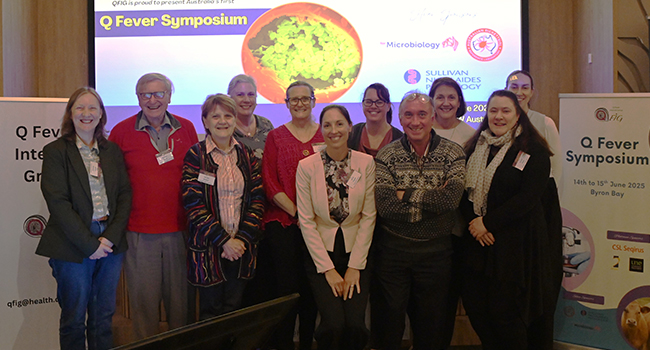
Australia’s first Q Fever symposium was held in Byron Bay in June, bringing together experts from across the country and overseas.
The event focused on sharing knowledge, research and real-world experience on a disease that affects humans and animals.
Hosted by the Q Fever Interest Group (QFIG), the symposium featured speakers from France, Spain, Germany, the Netherlands, French Guiana and Uruguay.
Our staff played a key role in making sure local voices were part of the national conversation.
Dr Sarah Coghill, Lismore Base Hospital Infectious Diseases Physician, opened the event and helped organise the program.
She was joined by Casey Rucker, Medical Education Support Officer, who supported coordination and logistics throughout the weekend.
Their involvement helped highlight the work being done in regional NSW and gave local clinicians a chance to connect with global experts.
“Q Fever is something we see here in Northern NSW, so it’s important we’re part of the conversation,” Sarah said.
“Having international experts here gave us a chance to learn from their experience and share what we’re seeing locally.
“It spreads from livestock and can cause a severe flu-like illness.
“In some cases, it leads to long-term health problems like chronic fatigue and heart conditions.
“Raising awareness and improving prevention helps protect public health and the local economy.”
The symposium’s program covered diagnostics, disease modelling, vaccination, workplace safety and public health strategies.
Sessions also looked at how Q Fever affects agriculture, with input from AgForce and international researchers.
For our staff, attending was about contributing to the conversation and helping shape future directions for managing Q Fever in Australia.
Their presence ensured rural and regional challenges were part of the discussion.
Congratulations to Sarah and Casey for their leadership and commitment to making this event a success.
Pictured:
QFIG committee